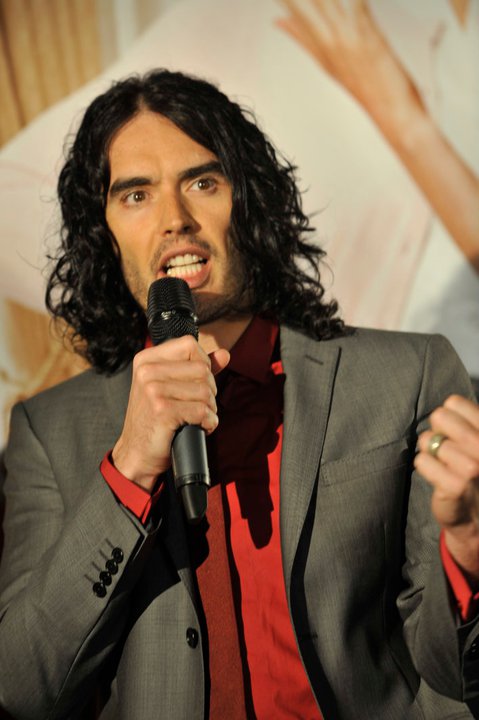Russell Edward Brand is an English comedian, actor, radio host, author and activist.
After beginning his career as a stand-up comedian and later becoming an MTV presenter, Brand first achieved renown in 2004 as the host of Big Brother's Big Mouth, a Big Brother spin-off. In 2007, he had his first major film role in St Trinian's, and the following year he landed a major role in the romantic comedy-drama Forgetting Sarah Marshall; the film led to him starring in a spin off, the rock comedy Get Him to the Greek, alongside Jonah Hill in 2010. He also worked as a voice actor in the animated films Despicable Me in 2010, Hop in 2011, and Despicable Me 2 in 2013, and played the title character of the 2011 remake of the romantic comedy Arthur. In 2013, he released the successful stand-up special Messiah Complex.
Since guest editing an edition of British political weekly New Statesman in 2013, Brand has become known as a public activist and campaigner, and has spoken on a wide range of political and cultural issues, including wealth inequality, addiction, corporate capitalism, climate change, and media bias. In 2014, Brand launched his political-comedy web series The Trews, released a book entitled Revolution, and began work on a documentary about financial inequality with Michael Winterbottom.
Over the course of his career, Brand has been the subject of frequent media coverage and controversy for issues such as his promiscuity and drug use, his outrageous behaviour at various award ceremonies, his dismissal from MTV and resignation from the BBC, and his two-year marriage with singer Katy Perry. He has incorporated many of his controversial public antics into his comedic material. A biographical documentary called Brand: A Second Coming was released in 2015.
Wikipedia
✵
4. June 1975
